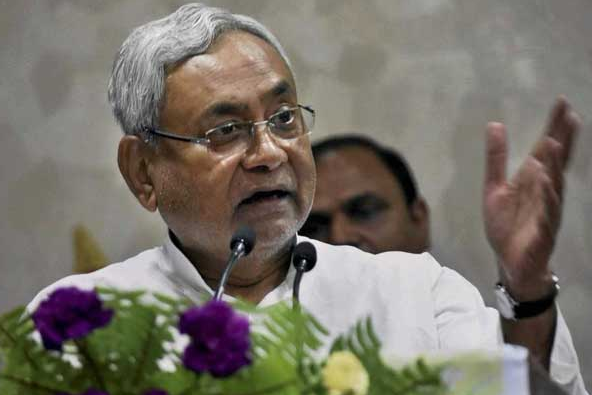The Hindu – Editorial – 1, July – 2017
Want to Become a Bank, Central / State Govt Officer in 2020?
Join the Most awarded Coaching Institute & Get your Dream Job


Now Prepare for Bank, SSC Exams from Home. Join Online Coure @ lowest fee
Lifetime validity Bank Exam Coaching | Bank PO / Clerk Coaching | Bank SO Exam Coaching | All-in-One SSC Exam Coaching | RRB Railway Exam Coaching | TNPSC Exam Coaching | KPSC Exam Coaching
The Hindu – Editorial – 1, July – 2017
a) Midnight makeover
e products, creating iIn a landmark reform, India today switches to a new indirect tax system, the Goods and Services Tax. The GST subsumes the multiple Central, State and local taxes and cesses levied on goods and services, unifying the country into a single market, thereby making it easier to do business and ensure tax compliance. This will attract investors and more efficiently mop up revenues for the exchequer. The reform has been years in the making, and having shown the political will to finally pull it of, the Central government must work with the States to chart a road map to simplify the tax regime. Currently there are multiple tax rates ranging from 0% to 28%, plus a cess on somncentives for lobbying and rent-seeking. The level of preparedness for the new tax system too is not optimal, with sections of industry, trade as well as the bureaucracy visibly anxious about several aspects of the GST’s operational and legal framework. In response, the date for businesses to file the first GST returns has been deferred. The generation of e-way bills for moving goods worth over ₹50,000 too has been put on hold, along with the requirement for e-commerce portals to deduct tax at source from small sellers. The GST Network, which will digitally capture billions of transactions daily, was not able to test its software in advance; and there is concern about the preparedness of intermediaries mandated to help businesses transition to the completely electronic compliance system. The coming days therefore could test the system, and the capacity of the authorities to think on their feet will be vital. As it stands, the GST in its initial avatar has a complicated structure, with far too many tax rates that could lead to classification disputes, and with the exclusion of key inputs such as petroleum products (with particularly high indirect tax levies). The Finance Minister has asked industry to ensure that the benefits of GST rate cuts are passed on to consumers, but it is not clear how businesses with higher tax incidence are to adjust pricing strategies or how the stringent anti-profiteering clauses will be interpreted. The transitory effects on India’s largely informal economy, which has already been hit by demonetisation, must be watched closely. Tax buoyancy, an easier investment climate and the 1% to 2% growth spurt expected from GST may take some time to be realised. Yet, reforms are the art of the possible and the government has said it will strive to rationalise the number of tax rates and bring excluded sectors into the GST over time. This is the first step in the evolution of the GST, and some initial hiccups are perhaps inevitable in a system founded on political consensus and federal adjustments. This is why it is unfortunate that some opposition parties, including the Congress which led the initiative on the GST for much of the past decade, decided to boycott the midnight inauguration in Parliament’s Central Hall.
b) Walk the talk
While it is impossible to fault Prime Minister Narendra Modi for speaking up against killing in the name of cow protection, it is equally impossible to be convinced about its earnestness and efficacy. His remarks at an event in Mahatma Gandhi’s Sabarmati ashram have come at a time when there is a groundswell of popular revulsion about violent, even murderous, cow vigilantism, leaving the unfortunate impression that it was but a response to public pressure. The #NotInMyName movement, which began with a Facebook invitation to participate in a protest in Delhi, had assumed viral dimensions, with other cities in India and elsewhere in the world organising or planning to organise similar events. What began as a somewhat limited mobilisation to campaign against lynching morphed into a broader movement involving all communities against state apathy to the phenomenon. The timing is not the only thing that gives rise to scepticism about Mr. Modi’s observations about cow vigilantism. Frequency is the other issue. A phenomenon that has wreaked violence, affected livelihoods, and created insecurities over the last couple of years — all of which have been compounded by a mischievous and hugely lawed order to regulate cattle sale — is deserving of a more muscular and frequent response. More importantly, it needs to be coupled with tangible action on the ground. One of the contradictions that Mr. Modi must square up to as well as grapple with is that, by and large, aggressive cow vigilantes who take the law into their own hands are members or sympathisers of one or the other organisations of the Sangh Parivar, the Bharatiya Janata Party’s extended family. Given this, words are simply not enough — unaccompanied by strong corroborative action, they only serve to perpetuate the lie that the top is either totally divorced from the distasteful happenings at the bottom or that it doesn’t have the means to control it. It is true that as Prime Minister, Mr. Modi has no direct control over law and order, which is a State subject. But as the BJP’s most popular leader, one who has no real rivals in the party, he must wield his influence and power to crack down on those who indulge in violence in the name of cow protection. In the absence of this, Mr Modi’s remarks may constitute nothing more than a mild reprimand. There is no denying that speech is better than silence and his remarks may help sharpen the focus on how determined governments are to uphold the rule of law — firmly, decisively, and in a manner that deters cow vigilantism. Any politician worth his salt knows there is Condemnation and there is condemnation. Mr. Modi should show us that he hasn’t used the small c.
Words/ Vocabulary
1) subsumes
Meaning: to include something or someone as part of a larger group.
Synonym: Includes, Classifies, Involves
Antonym: Exclude
2) cess / levy
Meaning: a tax or levy.
Synonym: Tariff, Tax
3) mop
Meaning: a stick with soft material attached to one end, especially used for washing floors.
Synonym: Swab, Shock, Clean
4) lobbying
Meaning: the activity of trying to persuade someone in authority, usually an elected member of a government, to support laws or rules that give your organization or industry an advantage.
Synonym: Influence, Persuade, Urge
Antonym: Dissuade, Halt, Hinder
5) deferred
Meaning: delayed until a later time.
Synonym: Postpone, Suspend, Delay
Antonym: Disobey, Stand up to
6) stringent
Meaning: having a very severe effect, or being extremely limiting.
Synonym: Strict, Harsh, Inflexible
Antonym: Lenient, Flexible
7) transitory
Meaning: lasting for only a short time.
Synonym: Temporary
Antonym: Permanent, Perpetual
8) spurt
Meaning: to increase or grow very quickly, or to suddenly increase by a particular amount.
Synonym: Eruption, Surge
Antonym: Peace, Continuity
9) rationalise
Meaning: to try to find reasons to explain your behaviour, decisions, etc.
Synonym: Justify, Defend, Excuse
10) inevitable
Meaning: certain to happen and unable to be avoided or prevented.
Synonym: Inexorable, Assured
Antonym: Avoidable, Uncertain
11) earnestness
Meaning: completely serious.
Synonym: Intensity, Enthusiasm
Antonym: Coldness, Idleness
12) efficacy
Meaning: the ability, especially of a medicine or a method of achieving something, to produce the intended result.
Synonym: Adequacy, Influence
Antonym: Inability, Failure
13) revulsion
Meaning: a strong, often sudden, feeling that something is extremely unpleasant.
Synonym: Disgust, Repugnance
Antonym: Delight, Liking
14) lynching
Meaning: Someone who they believe is guilty of a crime, they kill them without a legal trial, usually by hanging.
Synonym: Hang
Antonym: Create
15) morphed
Meaning: to gradually change one image into another, or combine them, using a computer program.
Synonym: Alter, Transform
Antonym: Sustain, Preserve
16) apathy
Meaning: behaviour that shows no interest or energy and shows that someone is unwilling to take action, especially over something important.
Synonym: Indifference, Unconcern
Antonym: Enthusiasm, Interest
17) scepticism
Meaning: doubting that something is true or useful.
Synonym: Doubt
Antonym: Conviction, Belief
18) wreaked
Meaning: to cause something to happen in a violent and often uncontrolled way.
Synonym: Inflict, Create, Impose
Antonym: Destroy, Ignore
19) grapple
Meaning: to fight, especially in order to win something.
Synonym: Struggle, battle
Antonym: Release
20) sympathisers
Meaning: a person who supports a political organization or believes in a set of ideas.
Synonym: Advocate, Collaborator
21) corroborative
Meaning: to add proof to an account, statement, idea, etc. with new information.
Synonym: Collateral, Supporting
22) perpetuate
Meaning: to cause something to continue.
Synonym: Maintain, Preserve
Antonym: Neglect, Prevent
23) rivals
Meaning: a person, group, etc. competing with others for the same thing or in the same area.
Synonym: Conflicting, Disputing
Antonym: Assisting, Supporting
24) wield
Meaning: to have a lot of influence or power over other people.
Synonym: Flourish, Shake
Antonym: Idle, Neglect
25) indulge
Meaning: to allow yourself or another person to have something enjoyable, especially more than is good for you.
Synonym: Satisfy, Accommodate
Antonym: Frustrate
26) reprimand
Meaning: to express to someone your strong official disapproval of them.
Synonym: Reproof, Lecture
Antonym: Praise, Commendation
27) deters
Meaning: to prevent someone from doing something.
Synonym: Check, Obstruct
Antonym: Encourage
28) Condemnation
Meaning: the act of condemning something or someone.
Synonym: Censure, Criticism
Antonym: Praise, Plaudits






